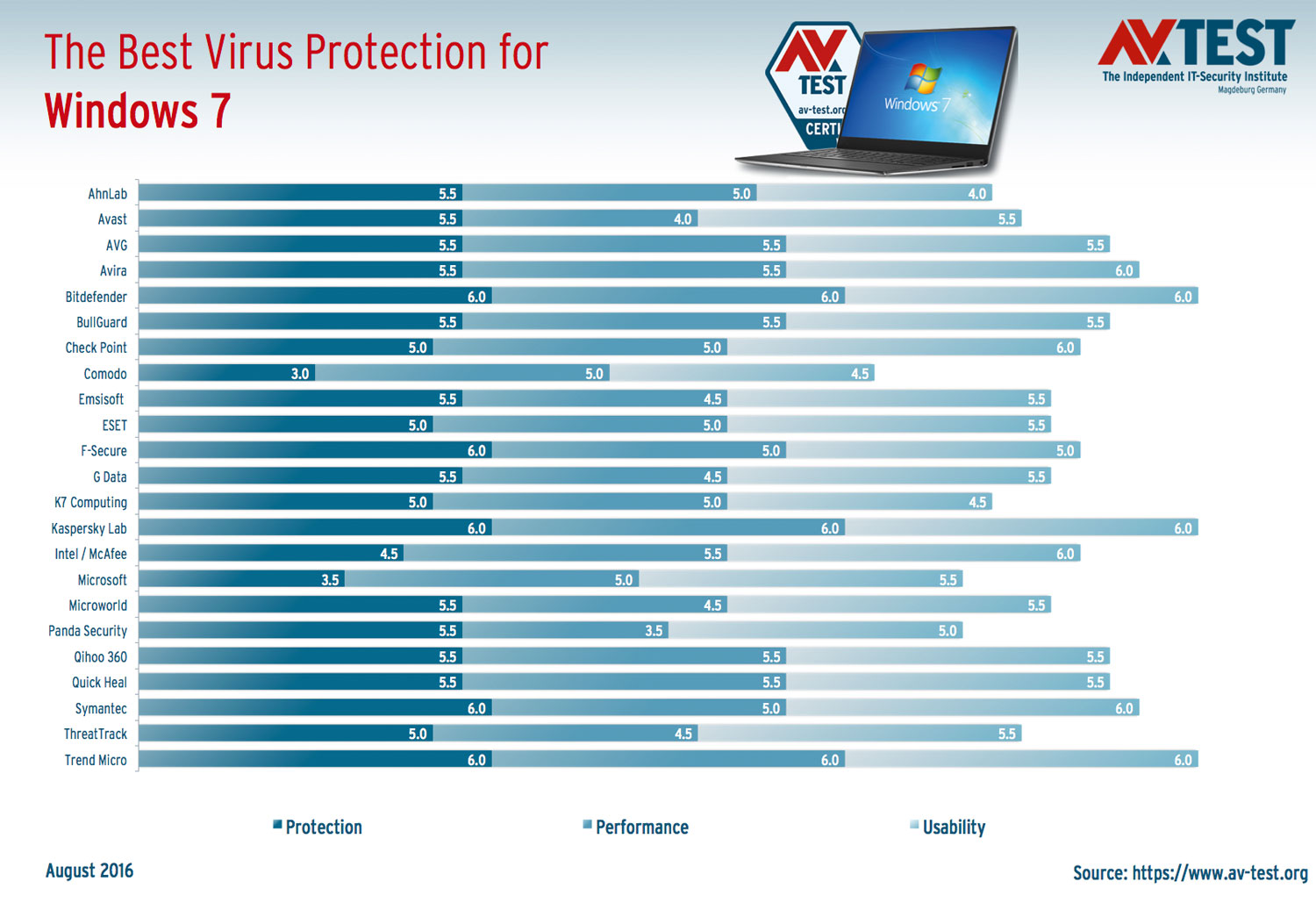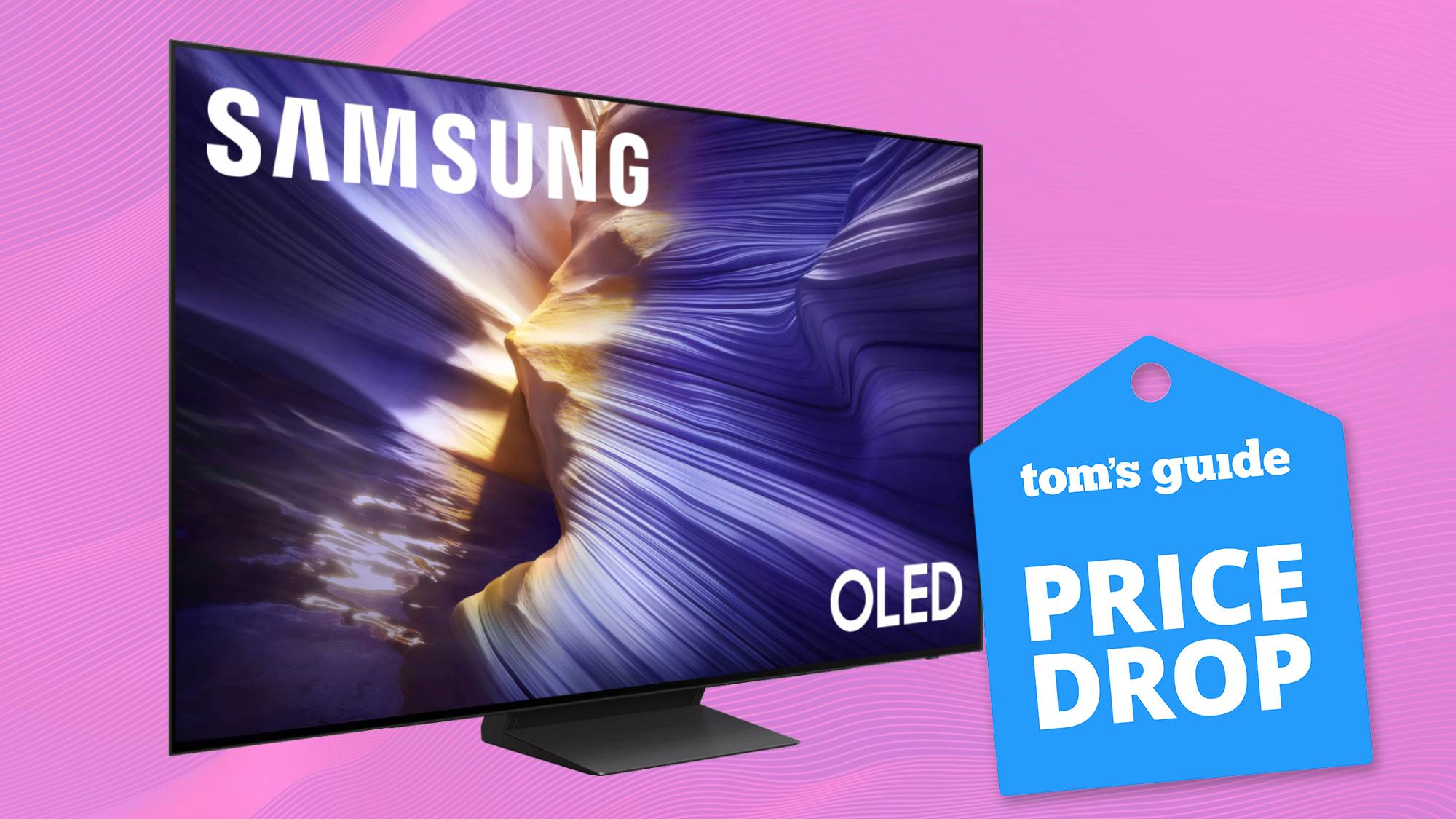Microsoft No Longer Provides Worst Windows 7 Security
Microsoft Security Essentials is no longer the absolute worst way to protect your Windows 7 PC, according to recent results from AV-TEST.
Here at Tom’s Guide our expert editors are committed to bringing you the best news, reviews and guides to help you stay informed and ahead of the curve!
You are now subscribed
Your newsletter sign-up was successful
Want to add more newsletters?

Daily (Mon-Sun)
Tom's Guide Daily
Sign up to get the latest updates on all of your favorite content! From cutting-edge tech news and the hottest streaming buzz to unbeatable deals on the best products and in-depth reviews, we’ve got you covered.

Weekly on Thursday
Tom's AI Guide
Be AI savvy with your weekly newsletter summing up all the biggest AI news you need to know. Plus, analysis from our AI editor and tips on how to use the latest AI tools!

Weekly on Friday
Tom's iGuide
Unlock the vast world of Apple news straight to your inbox. With coverage on everything from exciting product launches to essential software updates, this is your go-to source for the latest updates on all the best Apple content.

Weekly on Monday
Tom's Streaming Guide
Our weekly newsletter is expertly crafted to immerse you in the world of streaming. Stay updated on the latest releases and our top recommendations across your favorite streaming platforms.
Join the club
Get full access to premium articles, exclusive features and a growing list of member rewards.
It's been a long time coming, but it's true: Microsoft Security Essentials is no longer the absolute worst way to protect your Windows 7 PC. Rather, it's only the second-worst, at least according to the latest research from independent antivirus-evaluation lab AV-TEST.

The built-in Windows security suite eked out a narrow victory (if you can call it that) over an even weaker program: Comodo Internet Security Premium. But if you're looking for something spectacular, rather than just "not as awful as it used to be," AV-TEST recommends three antivirus brands — Bitdefender, Kaspersky and Trend Micro — that earned perfect scores. All three are on top of our list of best antivirus software.
Madgeburg, Germany-based AV-TEST periodically evaluates the efficacy of antivirus software for Windows, Mac OS X and Android, for both home and corporate users. The results are in for Windows 7 programs in the August 2016 bracket, which is the first time the company has evaluated the older Windows OS since February of this year.
As usual, AV-TEST evaluated each program on three tiers: Protection, Performance and Usability. Each category is worth six points, which means a "perfect" product would score 18. (There is no such thing as a perfect product; these are just very close at the moment.) The lowest score, though, was 12.5; not great, but still well above the company’s 10-point threshold for a recommendation.
Three programs scored a full 18 points: Bitdefender Internet Security 2016, Kaspersky Lab Internet Security 2017 and Trend Micro Internet Security 2016. According to AV-TEST, not only did the programs offer nearly unassailable protection against both new and known malware, but they also did so without slowing down their host machines or confusing their users.
In the middle were Norton Security 2016, Avira Antivirus Pro 2016, Quick Heal Total Security 17.0, Qihoo 360 Antivirus 5.0, BullGuard Internet Security 16.0, AVG Internet Security 2016, McAfee Internet Security 2016, F-Secure Safe 2016, Check Point ZoneAlarm Extreme Security 14.2, MicroWorld eScan Internet Security, G Data InternetSecurity 2016, ESET Smart Security 9.0 and Emsisoft Anti-Malware 11.9. These all earned scores between 17 on the high end and 15.5 on the low end, although it's worth pointing out that F-Secure still earned a perfect 6 on security.

(Antivirus companies choose which of their own products to submit for testing. Most choose the midrange products as most representative of their brands, but all of a single brand's antivirus products will use the same malware-detection software.)
Get instant access to breaking news, the hottest reviews, great deals and helpful tips.
On the low end of the spectrum, ThreatTrack VIPRE Internet Security 2016, Avast Free Antivirus 2016, K7 Computing Total Security 15.1, AhnLab V3 Internet Security 9.0, Panda Security Free Antivirus 16.1, Microsoft Security Essentials 4.9 and Comodo Internet Security Premium 8.4 brought up the rear, starting at 15.5 and ending at 12.5. These probably shouldn't be your first choices for PC protection, but at least some of them are free.
Microsoft baked Windows Defender, the successor to Microsoft Security Essentials, into Windows 8/8.1 and 10, so users of those operating systems will never be without antivirus software. But users or Windows 7 and Windows Vista (which will received Microsoft security updates until April 2017) need to manually download Microsoft Security Essentials from Microsoft's servers.
No antivirus program can promise foolproof protection, but you’re generally much better off having one — even a low-ranking one — than none at all. Of course, the best defense against malware is just to play it safe online and avoid suspicious links or e-mails.
For malware protection on other platforms, check out our pages on the best Mac antivirus software and the best Android antivirus apps.

Marshall Honorof was a senior editor for Tom's Guide, overseeing the site's coverage of gaming hardware and software. He comes from a science writing background, having studied paleomammalogy, biological anthropology, and the history of science and technology. After hours, you can find him practicing taekwondo or doing deep dives on classic sci-fi.
 Club Benefits
Club Benefits










